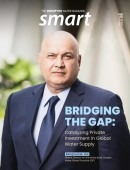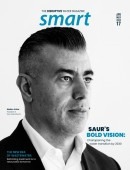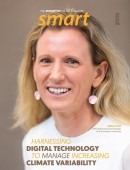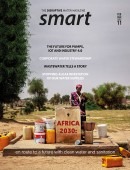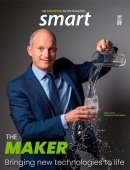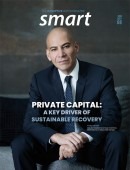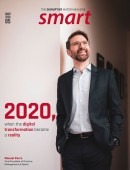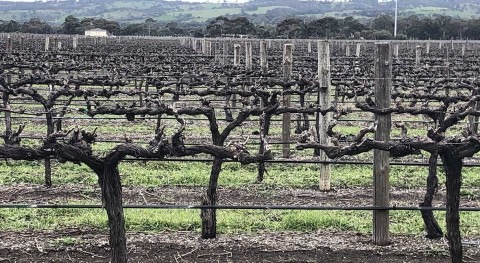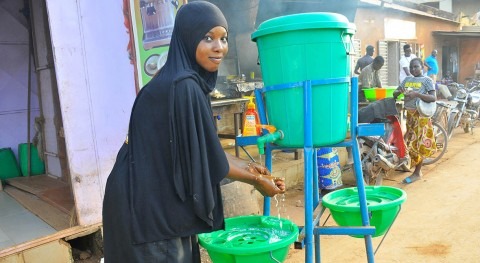Featured content
Content summary
We launch Smart Water Magazine Bimonthly number six, the first issue of 2021. After a trying and uncertain past year, the water sector has surmounted numerous challenges and has quickly adapted to the new reality. In many cases, adopting new technologies to guarantee that the water kept flowing during the hardest months of the coronavirus pandemic. Even though the health crisis is still very much with us, there is a reason for hope and this year could provide the water sector with important opportunities for advancing crucial WSS reforms and water investments, as Gustavo Saltiel, Lead Water and Sanitation Specialist at the World Bank, points out in a recent interview, as well as looking not only at embracing digitalization, as we witnessed last year, but also a more sustainable and resilient business model. This issue’s cover page is dedicated to Abdullah Bin Ibrahim Al-Abdlkareem, SWCC Governor and WTTCO's Chairman of the Board, who speaks to us about the recently created Saudi water entity. Valerie Houchin, Sales Team Leader, Energy & Sustainability Services at Schneider Electric, speaks to us about how the pandemic has made the water industry more aware of their sustainability models, a key aspect when it comes to tackling climate change impacts and COVID-19. Find all this and much more in Smart Water Magazine Bimonthly 6.
Features
Bentley Systems presents innovators who have embraced digital twins in water, sewer and stormwater projects as well as in operations.

A year into the pandemic, we revisit the current status of SARS-CoV-2 monitoring in wastewater in support of public health responses.

Droople shares some thoughts on the value of water. As global supplies decline and costs increase, should we question the price of water?

Indar describes their fish-friendly technology to address desalination water intake needs while preserving marine resources.

In Australia, Rezatec is using satellite-based geospatial data analysis to monitor dam assets that enable proactive management decisions.
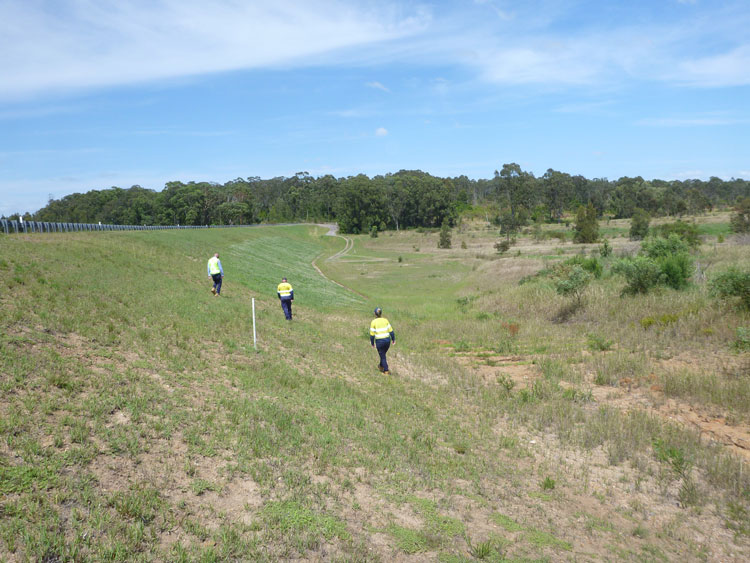
Will Sarni and Jacob Tompkins write a feature analysing the effects of digital tools on the workforce of water utilities.

Learn how NORMA Group supports various agricultural businesses with innovative and water-saving irrigation systems and components.

Have you ever been in an airport or flying in a plane and wondered how much water these infrastructures and aircraft use?

Interviews
H.E. Eng Abdullah Bin Ibrahim Al-Abdulkareem, SWCC Governor and WTTCO’s Chairman of the Board
- The SWCC's privatization strategy includes the separation of production assets from transportation, and the establishment of the WTTCO
- WTTCO will leverage the very latest and leading-edge technologies in the best, most efficient and purpose-driven ways possible
- From an operational perspective, we have initiatives to improve efficiencies, using the latest technologies in water transmission
- WTTCO operates under the Environmental, Water, and Agriculture Supervisory Committee, which will determine the appropriate market share
- The projects currently being implemented were not included in the target plans intended to be offered to the private sector in 2021
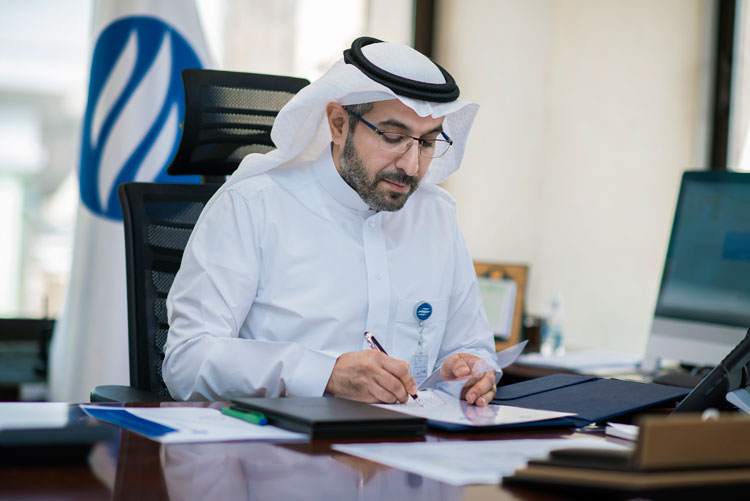
Valerie Houchin, Sales Team Leader, Energy & Sustainability Services at Schneider Electric
- We developed 21 initiatives to support the UN’s Sustainable Development Goals and have been reporting progress over the last 15 years
- We partner with our water customers in their digital transformation to help them reach their resilience and sustainability goals
- It is a long-term partnership as it involves truly listening and understanding the unique situations, needs and goals of my clients
- COVID-19 has strengthened the need for these projects to come to fruition as other revenue sources in their agencies may be strained
- Schneider has implemented energy and sustainability projects across the globe, committing to save $2.7B in energy over the next 20 years

Gustavo Saltiel, Lead Water and Sanitation Specialist at The World Bank
- Lessons learned from other crises suggest that these can offer important opportunities for advancing crucial WSS reforms and water investments
- The Water Global Practice of the World Bank is supporting WSS utilities and service providers to increase safe access to both services
- Many recent World Bank Operations have included components that support improving WASH in health care facilities and schools
- Expanding water supply systems without improving performance puts a greater risk on the long-term sustainability of a utility’s operations
- An emerging area of work is on technological innovations that will spearhead the provision of water access points in slums and rural areas

Dr Catarina Fonseca. IRC Associate
- At IRC the focus has always been on supporting colleagues in the sector to talk about finance, to engage with financing mechanisms
- Systems thinking means thinking about district master plans to reach universal access and not simply technology or infrastructure
- Many heads of states and Ministers of Finance and their teams don’t know the impact of sanitation on health and the environment
- Water and sanitation infrastructure are climate adaptation and mitigation measures, but are small in financing agencies’ portfolios
- Some instruments to raise finance to the sector are about restructuring internal public finance and incentivising sector performance
_01.jpg)
Graham Watkins, Chief of the Climate Change Division at Inter-American Development Bank
- We help LAC countries by aiding them to access financial resources to design and implement adaptation measures across sectors
- Countries across LAC have differential access to water resources, and many countries do not yet manage these resources sustainably
- Adaptation measures should respond to environmental changes, including investments in sanitation, solid waste, and wastewater treatment
- While COVID-19 continues to rage across the region with disastrous impacts, many countries still are committed to increasing climate action
- The region may find itself left behind if it does not embrace the emerging global race to reach net-zero emissions by 2050

Opinion articles
- Gonzalo Delacámara, Head, Water Economics Department, IMDEA & international advisor to the EC, OECD, World Bank Group, and UN system
- Simon Ayley, Director of Water & Environment at WRc
- Enrique Gómez, Professor of Chemical Engineering and Materials Science and Engineering, The Pennsylvania State University, and Jeffrey Wilbur, R&D Manager, RO/NF Membrane Chemistry, DuPont Water Solutions


